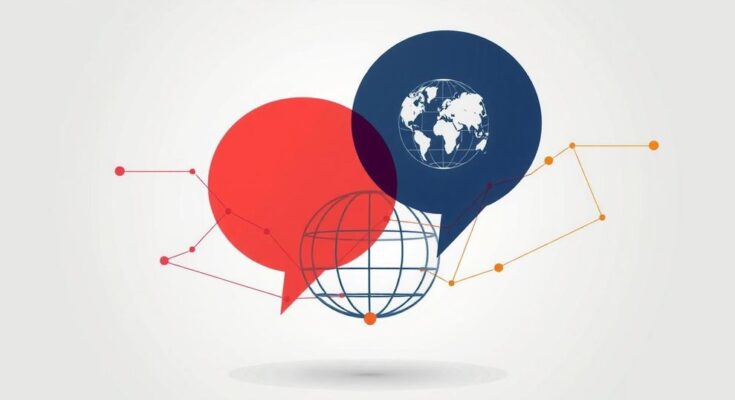Brazil has accused the US of politicizing its judicial decisions amid a conflict over online free speech and platform regulation. The dispute began after a Brazilian court ordered the suspension of the Rumble platform for noncompliance with a court order against a far-right user. The US has condemned Brazil’s actions as contrary to freedom of expression, while Brazil reaffirms its judicial independence.
The Brazilian government, under President Luiz Inácio Lula da Silva, has expressed its criticism of the United States for politicizing Brazil’s judicial rulings amid an ongoing dispute regarding free speech and online platform regulations. This conflict escalated when Supreme Court Judge Alexandre de Moraes ordered the suspension of the Rumble video-sharing platform, known for its popularity among conservative voices, due to its noncompliance with a court directive to block a far-right user’s account.
The US State Department responded to the suspension by condemning the Brazilian court’s decision, asserting that restricting information and penalizing American companies for failing to censor US citizens contradicts democratic principles, notably freedom of expression. Furthermore, it stressed the importance of respecting national sovereignty in international interactions.
In a resolute rebuttal, Brazil’s foreign ministry criticized any efforts to politicize its judicial processes, emphasizing that the independence of Brazil’s courts must be maintained. This incident follows earlier tensions between Judge Moraes and individuals such as Elon Musk concerning online disinformation management, as Moraes has defended his rulings as pivotal for the protection of Brazilian democracy.
The current tensions are also linked to the legal challenges facing former President Jair Bolsonaro, who is accused of attempting a coup to prevent Lula’s inauguration following the 2022 election. This situation was aggravated in January 2023 when Bolsonaro’s supporters stormed the presidential palace, Congress, and the Supreme Court, demanding military intervention based on claims that the elections were fraudulent.
The conflict between Brazil and the United States highlights tensions over free speech, judicial independence, and online regulation. Brazil perceives the US criticism as an undermining of its sovereignty, while the US defends its position as a protector of democratic values. This situation underscores the intricate relationship between national law and international discourse on freedom of expression. Continuing disputes regarding disinformation and online platform regulations could further complicate diplomatic relations between the two nations, emphasizing the need for a balanced approach to free speech and sovereignty in the digital age.
Original Source: newscentral.africa




